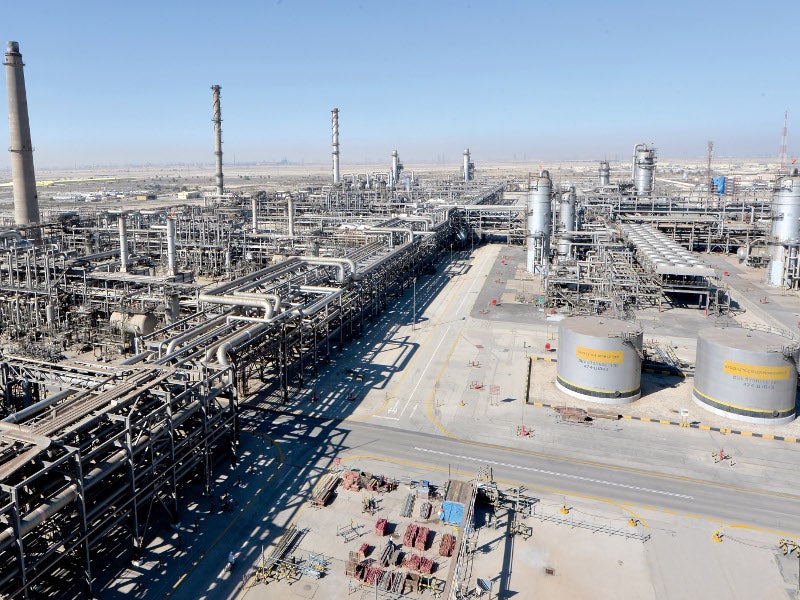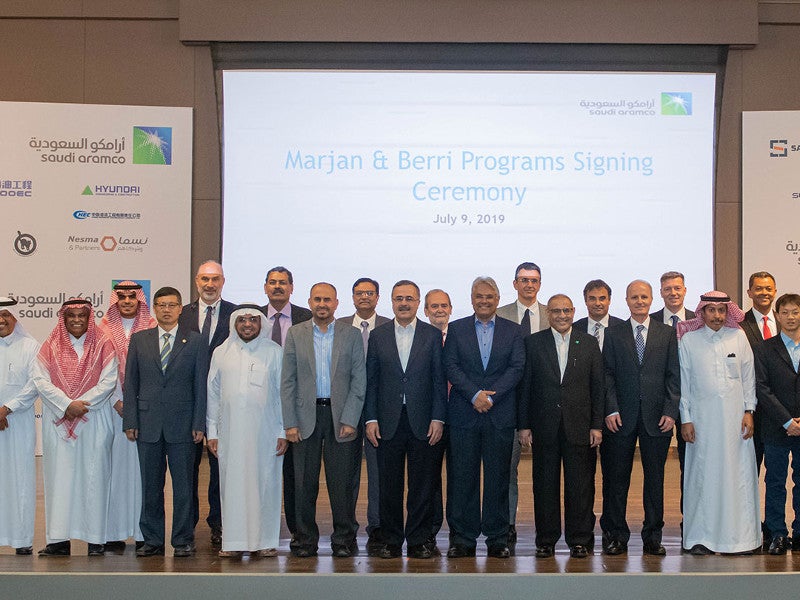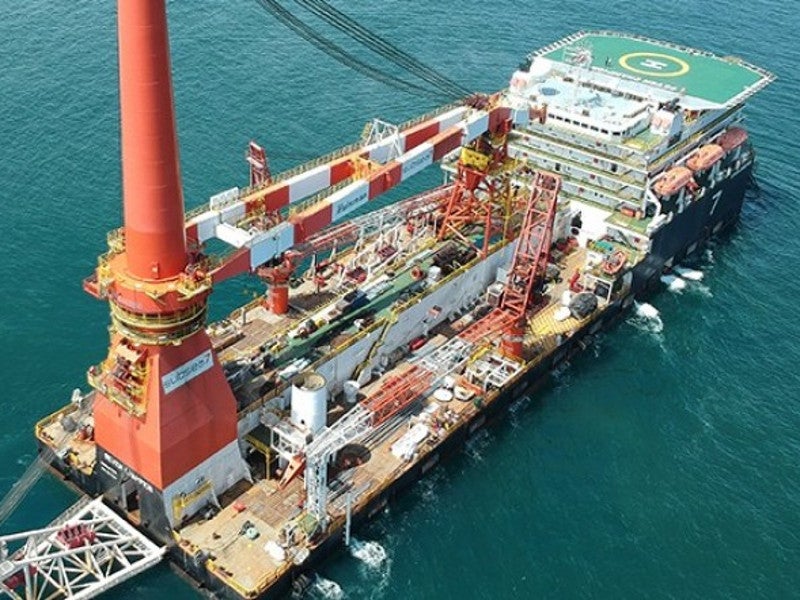The Berri field, located partly onshore and partly offshore in the eastern coast of Saudi Arabia, is being expanded under the Berri Increment Program (BIP) to double its crude production capacity to 500,000 barrels per day (bpd).
State-ownedSaudi Aramco owns and operates the Berri field, which has been in production for more than four decades.
The Berri Increment Program was initiated with the front-end engineering and design (FEED) studies in 2017, while the key engineering and construction contracts for the project were awarded in 2018 and 2019.
Scheduled for commissioning in 2023, the Berri oil field expansion project is being implemented with an estimated investment of £4.8bn ($6bn).
The project is expected to add 250,000bpd of Arab Light crude production, apart from 40,000bpd of associated hydrocarbon condensate production from the Berri field.
Berri oil field expansion background
Discovered in 1964, the Berri field commenced crude oil production in 1970, while the Berri gas plant was brought into operation in 1977.
Saudi Aramco employed horizontal drilling technique for the development of offshore wells at the field in 1991.
The Berri gas plant was expanded with the installation of sulphur recovery trains as well as new storage tanks, to handle additional volumes of associated gas production from the field, in 2004.
The Berri field comprises seven producing reservoirs, and its main production and processing facilities are located in the city of Jubail approximately 50km north of the Ras Tanura export terminal.
The field is currently capable of producing 250,000bpd of Arab Light crude. The increment program aims to double the crude production capacity of the field through enhanced oil recovery method, as part of Saudi Aramco’s plan to maintain its overall maximum sustained crude production capacity at 12 million barrels of oil a day (Mbod) by 2023.
Berri increment project details
The Berri oil field expansion project involves a 250,000bpd new gas oil separation plant (GOSP) at the existing Abu Ali GOSP facility, and additional gas processing facilities at the Khursaniyah gas plant to produce 40,000bpd of hydrocarbon condensate.
The new GOSP for the expansion project will be installed with a 140MW gas-fired power generation unit. The plant will also be equipped with sulphur removal trains to process 370 million standard cubic feet per day (Mscfd) of associated sour gas.
Two drilling islands, one water injection facility, 11 oil and water offshore platforms, and nine onshore oil production and water supply drill sites, as well as associated pipelines are being developed as part of the expansion project.
The drilling islands are being developed to the north and south of the King Fahad Industrial Port causeway in Jubail. The drill sites will occupy an area of 616,553m² and 263,855m², respectively.
Contractors involved
Amec Foster Wheeler was engaged for the front-end engineering and design (FEED) studies for the new gas oil separation plant in the Abu Ali Island, as well as for the additional gas processing facilities at the Khursaniyah gas treatment facility for the Berri oil field expansion project in 2017.
Abu Dhabi-based National Petroleum Construction Company (NPCC) was contracted for engineering, procurement, construction, and installation (EPCI) of nine offshore jackets for the field in 2017.
SNC-Lavalin was contracted to provide engineering and project management services for the new facilities at Saudi Aramco’s existing plants at Abu Ali and Khursaniyah for the Berri increment program in April 2017.
Belfinger was contracted to modernise the air-pressure system at the Berri gas plant in August 2018.
China Harbour Engineering was awarded the construction contract for the two drilling islands for the expansion project in September 2018.
Subsea 7, in consortium with L&T Hydrocarbon Engineering, a subsidiary of Larsen & Toubro, was awarded the EPCI contract for the subsea pipelines of the Berri oil field expansion in April 2019.
Saipem was awarded the EPCI contract for the new processing facilities at Abu Ali as well as Khursaniyah for the Berri increment project in July 2019.





